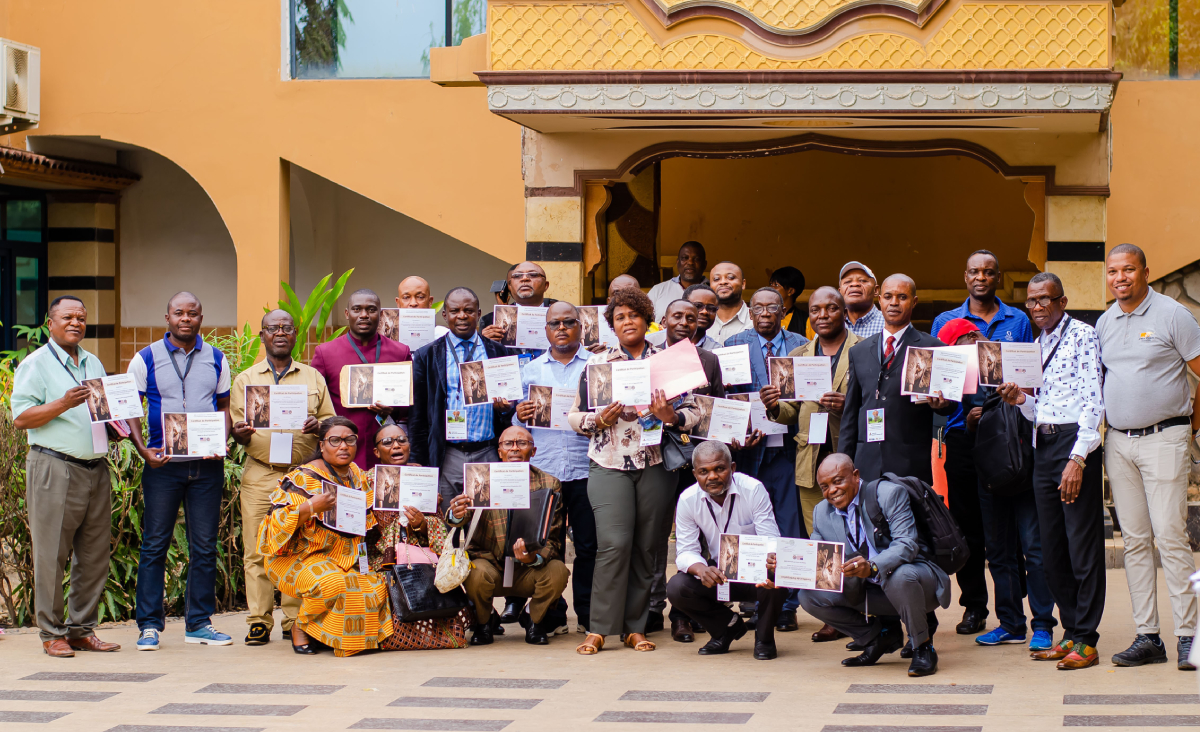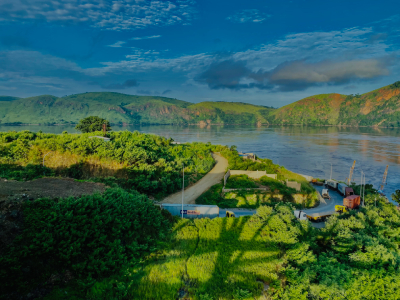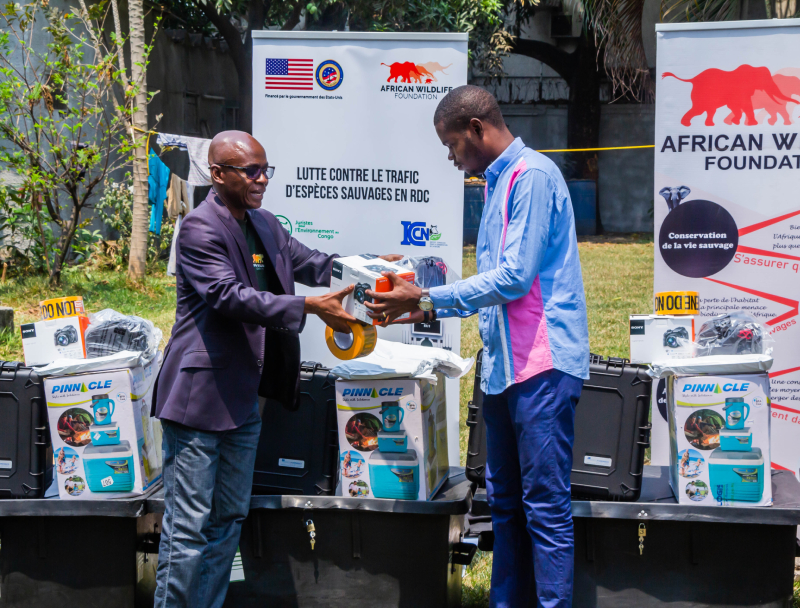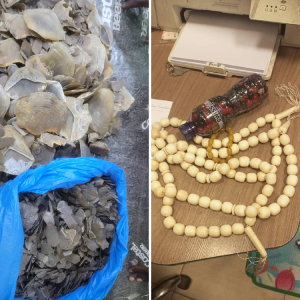Three-Year AWF Program Trains DRC Officers at Major Ports to Combat Wildlife Trafficking

DRC law enforcement officers after training on CITES and human rights.
At the busy Port of Matadi, the largest deep-water port in the Democratic Republic of the Congo (DRC), Thomas Bile Bekoka, an inspector at the Office National des Transports (ONATRA), has long focused on port logistics. However, like many of his colleagues, he was largely unaware of the growing impact of wildlife trafficking moving through the port.
Matadi’s strategic location along the Congo River and proximity to international shipping lanes make it a critical node in the multi-billion-dollar wildlife trafficking network. Despite existing laws protecting endangered species, gaps in training, collaboration, and prosecution allow illegal products to flow relatively unchecked through DRC ports.

Matadi Port, DRC
“I didn’t know that wildlife species are protected even outside their natural habitats,” Bekoka said. “Now that I know traffickers change their concealment methods daily, I’m motivated to be more vigilant at the port.”
Wildlife trafficking has reached critical levels in the DRC, which serves as both a source and transit hub for illicit wildlife products. The impact on local wildlife populations is devastating. For example, due to poaching, the country’s elephant population plummeted from around 100,000 in the early 1980s to an estimated 6,000–10,000 by 2017, according to DRC’s National Plan for Ivory (PANI).
In 2016, the African Wildlife Foundation (AWF) conducted a preliminary analysis identifying four critical barriers to effective CITES implementation at the DRC’s borders. These included limited expertise in identifying illegal wildlife products, insufficient inter-agency coordination, inadequate investigative practices, and weak prosecution resulting in minimal penalties for offenders. These gaps have allowed wildlife trafficking to flourish, exploiting border vulnerabilities and undermining broader conservation efforts.
While the Institut Congolais pour la Conservation de la Nature (ICCN) enforces wildlife protection laws within DRC’s protected areas, its mandate does not extend to border control. This underscores the need for collaboration with border law enforcement to prevent illegal wildlife trade and effectively enforce CITES regulations.
“The DRC’s role as a source and transit country for illicit products, such as ivory and pangolin scales, underscores the need for strong legal measures and law enforcement,” says Joe Kassongo, Senior Legal Officer at AWF.
Between 2021 and 2024, AWF with support from the U.S. State Department’s International Narcotics and Law Enforcement (INL) division trained 150 agents from various enforcement bodies on CITES regulations, species identification, illegal trade detection, and human rights. Another 100 officers received specialized training in crime scene management and evidence handling, essential skills in a sector where prosecution relies on meticulous evidence.

To support these efforts, AWF provided $41,000 worth of crime scene management kits and office equipment, enabling field operations at N’jili Airport and Matadi Port.
“With this new equipment and training, we can manage crime scenes effectively — a capability we never had before,” said Audace Amisi, deputy director of the anti-fraud brigade at N’djili International Airport.
In a successful operation, a team of seven Judicial Police Officers (OPJs), intensively trained at the Institut National de Formation des Officiers de la Police Judiciaire (INAFORJ), seized 20 kilograms of pangolin scales and rescued three sitatunga antelopes. They also arrested three traffickers in Kinshasa, whose cases are now before the courts.

“For our first field operation, it was emotional but rewarding,” said Berthold Ofutanya, OPJ unit commander. “We’re developing the skills needed to make a real impact in fighting wildlife trafficking.”
AWF’s project has also fostered stronger inter-agency collaboration among ICCN, N’djili Airport, Matadi Port, and CITES Coordination RDC. Previously, ICCN had no jurisdiction at border points, but now, through AWF’s initiative, ICCN works seamlessly with port and airport officials, unifying efforts to combat wildlife crime.
“Collaboration between officers at N’djili Airport, Matadi Port, and CITES RDC has become smoother,” said Antoine Tabu, AWF Country Coordinator, DRC. “These agencies are now aligned in fighting wildlife crime, without AWF needing to serve as a bridge.”
To broaden support for wildlife protection, AWF hosted a symposium promoting best practices and collaboration with civil society organizations, NGOs, and community groups. This expanded network amplifies efforts to protect DRC’s rich biodiversity.
“The success of the INL project in the DRC represents a major step forward in combating wildlife trafficking,” said Kassongo. “Our commitment to training, resources, and inter-agency cooperation lays a solid foundation for sustainable wildlife protection.”
AWF’s Director, Counter Wildlife Trafficking Program, Didi Wamukoya, emphasized the importance of ongoing efforts: “Just as no one can survive with a single lung, this project has helped protect the Congo Basin’s forests, one of the world’s lungs. I hope that everyone involved will continue these efforts, as the fight against wildlife trafficking must go on.”